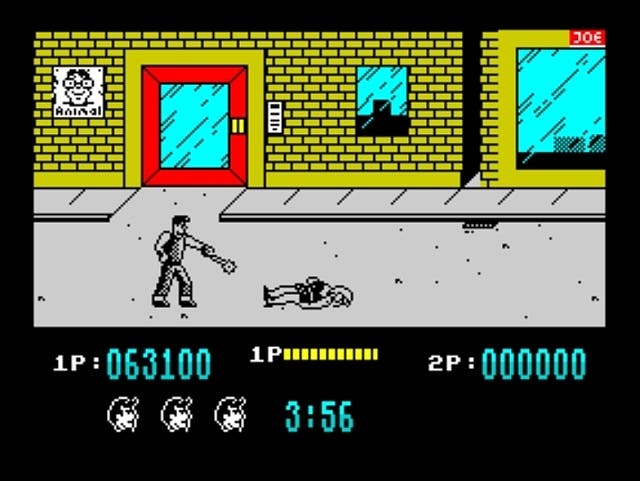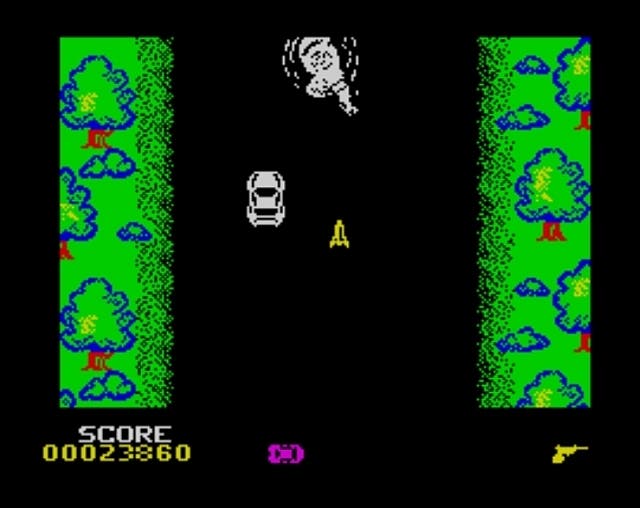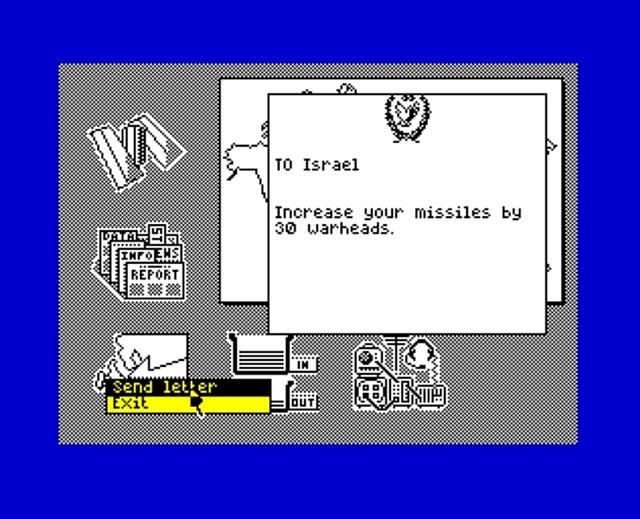Bad Influence
No, not Violet Berlin (sorry).
If you've been unfortunate enough to see a Daily Express headline recently, you may have been exposed to something along the lines of: "FATAL CONSOLE MANHUNT OF SKIVING BLUE-TONGUED IMMIGRANT GAMERS KILLED OUR PRINCESS." Besides political wrongheadedness, conspiracy theories about decade-old car crashes and Sudoku, there's nothing Britain's sensationalist tabloids enjoy more than drawing dubious links between gaming hijinx and every single crime committed in the entire country.
Rather than being the result of a complex and unpredictable stew of social, cultural and psychological factors, it turns out criminality can be accurately determined by how much a person enjoys playing the Grand Theft Auto franchise. Thank heavens for that - it saves an awful lot of time-consuming research. Handily, the resulting media exposure also tends to act as something of a sales boost; almost as if tabloid scare-mongering and controversial game sales are reciprocally feeding off one another like gigantic, slurping parasites. Or something.
All rather overblown, of course. If games had ever possessed the level of influence hypothesised by certain contemporary columnists, the world around us would have been reduced to smoking wreckage many moons ago. Can't quite believe that 8-bit machines would teach such malevolence? Then please take a standard-issue white coat and follow the pulsing floor lights towards the scientific research area, as EG:R expose the deeply disturbing lessons taunt by the murky underbelly of 1980s software.
Moral Decline

Cast your mind back to Target Renegade (Imagine, 1988); as blatant an advert for vigilantism as you were ever likely to see. Thanks to TR's seductive beat 'em up action, we all learned that the correct course of action following an injustice against a family member was to take immediately to the streets in a frenzy of vengeance. Further gameplay usefully informed us that all women are violent prostitutes and that motorcyclists are good for nothing except being fly-kicked from their mounts and punched repeatedly on the kerb. Had an altercation with your local pub landlord recently? TR demonstrated the best way to end it - with a brutal pool cue beating.
Other titles were more subtle with their insidious mockery of public decency. In Spy Hunter (Midway, 1985) the player was ostensibly a 'goodie' - but how were we to know what calibre of information said hunted spies were carrying? Perhaps they were desperately attempting to deliver vital folders of terrorist-defying data across the border. Such a righteous mission could have saved hundreds of lives, if only that ruthless assassin with the white car hadn't continually riddled our potential saviours' vehicles with bullets.

Even putting such speculation aside, the game was all about exceeding sensible speed limits, driving like a maniac and forcing friend or foe alike off the road. Often into nearby rivers and trees. As if this shocking lack of respect for basic highway laws wasn't enough, Spy Hunter offered a masterclass in how to launch surface-to-air missiles at innocent helicopter pilots. Shameful.
Intellectual pursuits couldn't escape from the clammy grip of immorality either. Scrabble (Mastertronic, 1987) probably wouldn't be the first addition to a list of games likely to shake the foundations of society, but closer examination revealed a dark secret at the heart of this particular version. Due to an understandably slim database of words (11,000: not even one tenth of the Oxford English Dictionary), the Spectrum release was forced to rely heavily upon the honesty of its participants. "Is this a word?" it would ask, wide-eyed and innocent, as you slapped XZQZ down on a triple word score and raked in the points. An admirably optimistic approach, but also a foolish one. They may as well have just coded a black screen with the phrase "cheating gets results!" repeated ad infinitum.
Political Meltdown

Grim though the present global situation may appear, it's nothing compared to the dystopian horrors presented by Armageddon Man (Martech, 1987). This game handed the reigns of diplomacy to bedroom-dwellers everywhere, before retreating to a safe distance and hoping for the best. Depicting an exaggerated future (or possibly present, if it was one of those titles which shortsightedly pitched the dark future around 2008), players were introduced to a world in tantalising balance. Powerful states had to be encouraged and appeased in equal measure, whilst food and energy resources were rationed with a firm hand. As the clock of conflict ticked perpetually toward the hour of destruction, only a wise head could avert an alarming global war.
But what, dear readers, was the only part of this game to feel even remotely entertaining or rewarding? That's right; aggravating twitchy nations until they unleashed a total thermonuclear strike on an unsuspecting neighbour. Then doing it again and trying to beat your previous time.
